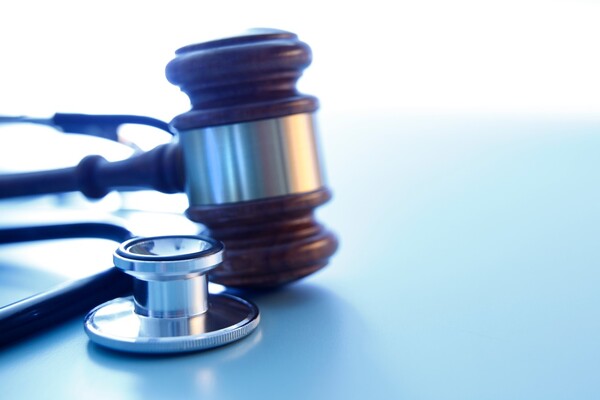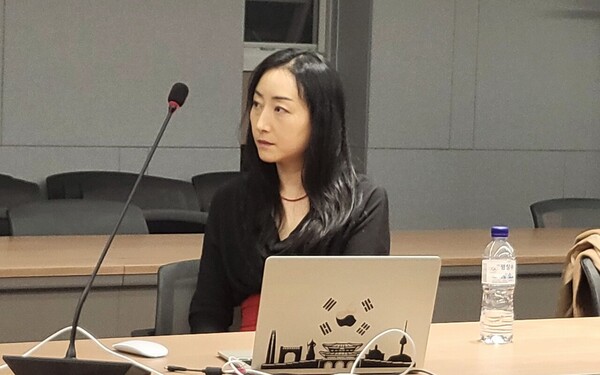2 Korean doctors are accused daily, and 1 UK doctor yearly. Why are they different?
Two doctors are brought to court every day for professional negligence in Korea. The number is higher than that of cases doctors are charged with professional malpractice in the United Kingdom in a year.
From 2013 to 2018, the number of cases in the U.K. where doctors were charged and convicted with professional negligence totaled seven. Four were found guilty. Instead of prosecution, 128 cases were terminated at the investigation stage by the police or prosecution.
According to the Research Institute for Healthcare Policy, 670 doctors were convicted of professional negligence in Korea during the same period.
(Credit: Getty Images)
Park Hyun-mi, a professor of medical education at Korea University College of Medicine, attributed the difference to U.K.’s institutional devices and social perception in dealing with medical malpractices and disputes. In a medical ethics seminar on Monday, Professor Park emphasized Korea also needs to change perceptions and improve systems.
Park graduated from the University of Birmingham/Brighton & Sussex Medical School in 2002 and worked as a surgeon at the University of Nottingham Hospital. She also headed the association of Korean doctors in the U.K.
Disputes prevention system in and out of the hospital with focus on preventing recurrence rather than accusation
The U.K. operates counseling services for patients in each hospital, called the “’Patient Advice and Liaison Service (PALS).” It receives complaints or difficulties patients and their guardians experience while using medical services. That prevents medical disputes due to a lack of communication or friction between patients and their guardians and medical institutions and their staff in advance.
There is also a big difference in the coroner system, which deals with autopsy procedures. In the U.K., the state designates a coroner in charge of autopsy. A lawyer or a prosecutor-turned-lawyer will handle it. In the case of deaths except for stage three or four cancer patients or palliative care patients, the coroner decides whether to conduct an autopsy and then undergo a funeral procedure. There is no exception, including deaths outside the hospital and the death of a patient with a history of surgery.
Park cited the case of the late singer Shin Hae-cheol who died of medical malpractice in 2014. “It is unthinkable in the U.K. that family members and acquaintances decide on autopsy while undergoing the funeral procedure (despite suspicions of medical malpractice). In the U.K., state-designated coroners make all decisions concerning autopsies,” she said. “Such a system makes a big difference.”
The professor also pointed to the lack of organization or system equivalent to the General Medical Council (GMC), an agency managing medical licenses.
Based on medical ethics, GMC suspends or revokes a doctor’s license for violating it. More than 150 people receive such disciplinary action on average. GMC’s disciplinary action is separate from legal suits. Instead, it deals with cases of unethical behavior in the medical field and the private domain.
Professor Park also stressed the need to create a hospital culture that focuses on preventing recurrence and preparing follow-up measures rather than criticizing doctors’ faults, adding that colleagues, patients, and their guardians must understand medical mistakes.
“Doctors who find their mistakes during the treatment process immediately notify them of the medical staff, patients, and guardians. Then, they clarify which process was wrong and explain countermeasures. Medical workers then discuss how to prevent a recurrence,” she said.
Park went on to say, “Medical professionals can make mistakes because they are also humans. So how to get through this is important. The focus should be on what learning can be gained in correcting, sharing, and resolving those mistakes.”
Koreans should learn to accept ‘honest mistakes’ but go the opposite way
Professor Park Hyun-mi of Korea University Medical College said society should show an attitude of accepting and understanding “honest mistakes” that occur while trying to provide the best treatment at a seminar on medical ethics on Monday.
It is also necessary to accept “honest mistakes” that occur when medical staff does their best. For example, the British judiciary branch “accepted” an honest mistake by medical staff charged with manslaughter in the death of a six-year-old patient. It also restored the doctor’s license that had been deprived.
Medical advice is sought to distinguish between honest mistakes and violations of the duty of care. A case is presented to eight to 10 medical specialists whose patients have died, and their opinions are collected. It is a device that “clears the boundary between mistake and murder and protects medical staff” through the doctor’s eyes.
Therefore, Korea should also clarify the criteria for punishing doctors’ acts, Park stressed. She added that if punishment is not properly meted out under ambiguous standards, only distrust of patients and guardians will grow.
“Korea now is going the opposite way. Doctors who struggled to save people until the last moment, not those who deserve punishment, are arrested. Accordingly, patients do not trust doctors, thinking they will be released with their licenses restored even if they do something wrong,” she said.
Park said all this does not mean doctors aren’t jailed in the U.K. no matter what they do, emphasizing the need to clarify whether it is a mistake that occurred in the process of doing one’s best or an obvious mistake.
“Accusing and prosecuting doctors who commit errors does not necessarily lead to a safer healthcare system,” she said. “Unconditional prosecution eventually leads to damage to patients.”
No Byline Policy
Editorial Guidelines
Corrections Policy
Source

